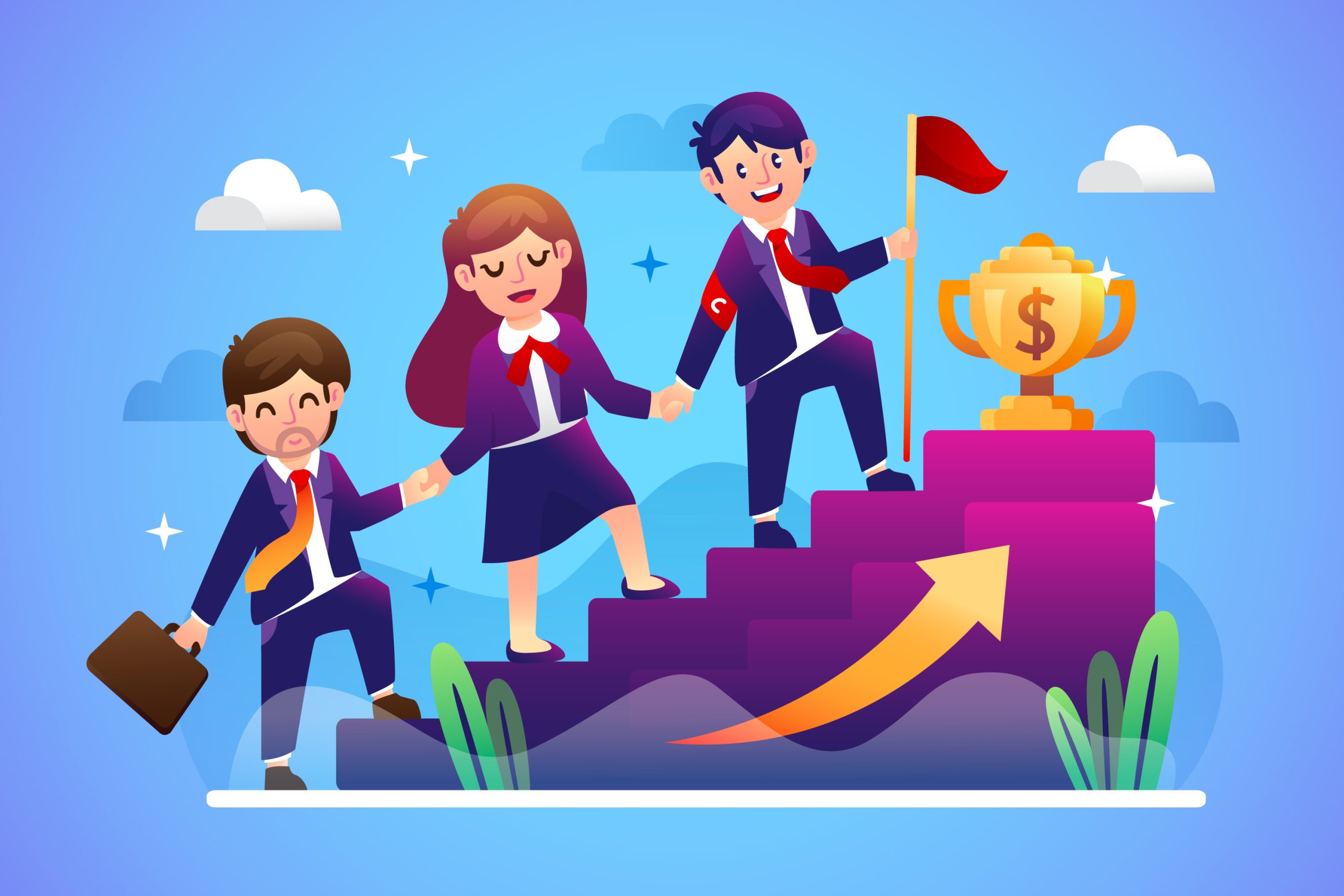Setting Clear Goals And Objectives
Setting clear goals and objectives is a crucial aspect of empowering individuals for professional growth. When individuals have a clear understanding of what they are working towards, they are more motivated and focused on achieving their desired outcomes. By establishing specific, measurable, achievable, relevant, and time-bound (SMART) goals, individuals can track their progress and stay on course towards their objectives.
Setting clear goals also helps individuals prioritize tasks and allocate resources effectively. It allows them to break down larger goals into smaller, manageable steps that can be tackled one at a time. This not only prevents overwhelm but also provides a sense of accomplishment as each milestone is reached.
Moreover, having well-defined objectives enables individuals to align their efforts with the overall vision and mission of the organization. By understanding how their individual goals contribute to the collective success of the team or company, employees feel more connected and engaged in their work.
In conclusion, setting clear goals and objectives is essential for empowering individuals to take control of their professional development and achieve growth in their careers.
Providing Opportunities For Skill Development
One of the key aspects of empowering individuals for professional growth is providing opportunities for skill development. By offering training programs, workshops, seminars, and other learning opportunities, organizations can help their employees enhance their skills and knowledge in a specific area. This not only benefits the individual by allowing them to acquire new skills or improve existing ones but also contributes to the overall success of the organization.
Skill development opportunities can come in various forms, such as technical training for specific job functions, leadership development programs for aspiring managers, or soft skills training to improve communication and interpersonal skills. These opportunities not only help individuals grow professionally but also foster a culture of continuous learning within the organization.
By investing in skill development opportunities for their employees, organizations demonstrate their commitment to supporting individual growth and development. This can lead to increased employee engagement, motivation, and satisfaction, as well as improved performance and productivity. Ultimately, providing opportunities for skill development is a win-win situation for both individuals and organizations looking to empower their workforce for professional growth.

Encouraging A Growth Mindset
Encouraging a growth mindset is essential in empowering individuals for professional growth. A growth mindset is the belief that abilities and intelligence can be developed through dedication and hard work. It is about embracing challenges, persisting in the face of setbacks, seeing effort as a path to mastery, and learning from criticism.
To foster a growth mindset in individuals, it is important to provide them with opportunities for learning and development. Encouraging employees to take on new challenges, learn new skills, and seek feedback will help them grow professionally. Providing constructive feedback and recognizing effort rather than just focusing on outcomes can also help cultivate a growth mindset.
Managers play a crucial role in promoting a growth mindset within their teams. They can lead by example by demonstrating a willingness to learn and improve themselves. By creating an environment where mistakes are seen as opportunities for learning and development, managers can empower individuals to take risks and push themselves out of their comfort zones.
Overall, encouraging a growth mindset among individuals not only leads to professional development but also fosters a culture of continuous improvement within organizations.
Offering Mentorship And Guidance
Offering mentorship and guidance is a crucial aspect of empowering individuals for professional growth. Mentorship involves providing support, advice, and encouragement to help individuals navigate their career paths and achieve their goals. A good mentor can share their knowledge and expertise, offer valuable insights, and provide constructive feedback to help individuals develop the skills they need to succeed in their chosen field.
Through mentorship, individuals can gain a greater understanding of the industry they work in, learn how to overcome challenges and obstacles, and expand their network of contacts. Mentors can also help individuals set realistic goals, create action plans, and track their progress over time. By building a strong relationship with a mentor, individuals can benefit from ongoing support and guidance as they continue to grow and advance in their careers.
Overall, offering mentorship and guidance is essential for empowering individuals to reach their full potential professionally. It provides them with the tools they need to succeed, helps them build confidence in their abilities, and encourages them to take on new challenges with enthusiasm and determination.

Creating A Supportive Work Environment
Creating a supportive work environment is essential for empowering individuals for professional growth. When employees feel supported and valued in their workplace, they are more likely to take on new challenges, seek out opportunities for growth, and ultimately reach their full potential.
One way to create a supportive work environment is by fostering open communication between employees and management. Encouraging regular feedback sessions, providing avenues for employees to voice their concerns or ideas, and actively listening to their feedback can help build trust and promote a sense of belonging within the organization.
Additionally, offering opportunities for professional development through training programs, workshops, or mentorship can empower individuals to enhance their skills and knowledge in their field. Investing in employees’ growth not only benefits the individual but also contributes to the overall success of the organization.
Furthermore, recognizing and celebrating achievements and milestones can boost morale and motivation among employees. By acknowledging their hard work and contributions, individuals are more likely to feel appreciated and motivated to continue striving for excellence in their roles.
In conclusion, creating a supportive work environment is crucial for empowering individuals for professional growth by fostering communication, providing development opportunities, and celebrating accomplishments.
Recognizing And Rewarding Achievements
Recognizing and rewarding achievements is a crucial aspect of empowering individuals for professional growth. When employees feel valued and appreciated for their hard work and contributions, they are more likely to be motivated to continue excelling in their roles. Recognition can come in various forms, such as verbal praise, awards, promotions, or even simple gestures like a handwritten note or a shout-out during a team meeting.
By acknowledging the efforts and accomplishments of employees, organizations not only boost morale but also foster a culture of positivity and encouragement. This recognition helps individuals understand the impact of their work on the overall success of the company and motivates them to strive for even greater achievements.
Moreover, rewarding achievements can further incentivize employees to reach new heights in their careers. Whether through monetary bonuses, additional training opportunities, or other perks, recognizing outstanding performance sends a powerful message that hard work does not go unnoticed.
In summary, recognizing and rewarding achievements is an essential component of empowering individuals for professional growth by boosting morale, fostering a positive work culture, motivating employees to excel further, and incentivizing them to reach new career milestones.

Fostering A Culture Of Continuous Learning
Fostering a culture of continuous learning is essential for empowering individuals for professional growth. By creating an environment that values and encourages ongoing development, organizations can help employees reach their full potential and achieve their career goals.
One way to foster a culture of continuous learning is to provide opportunities for employees to engage in training and development programs. Whether it’s through workshops, seminars, online courses, or on-the-job training, giving individuals access to resources that enhance their skills and knowledge can help them stay current in their field and adapt to changing industry trends.
Additionally, offering mentorship programs or coaching sessions can be beneficial in supporting individual growth. By pairing employees with experienced professionals who can provide guidance and feedback, organizations can help individuals identify areas for improvement and set goals for their professional development.
Creating a supportive and collaborative work environment where learning is valued and celebrated can also contribute to a culture of continuous learning. When employees feel encouraged to seek out new challenges, take risks, and learn from failures, they are more likely to grow both personally and professionally. Ultimately, fostering a culture of continuous learning not only benefits individuals but also contributes to the overall success of the organization.



